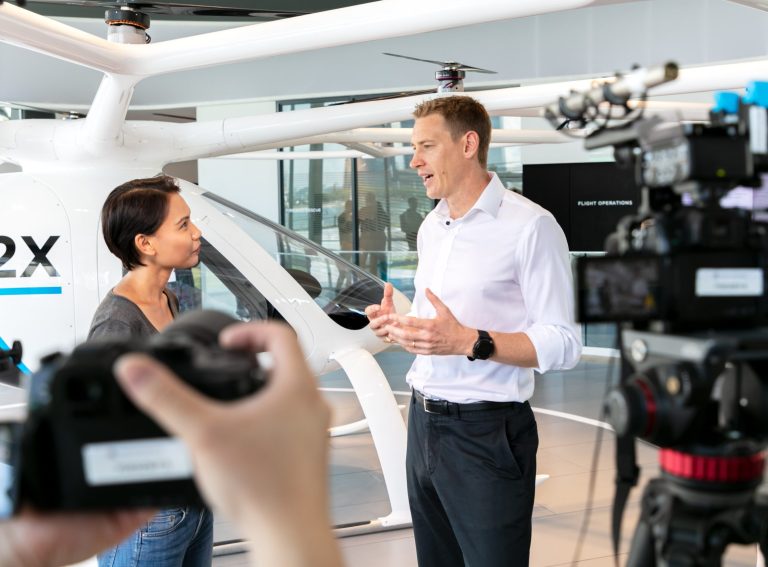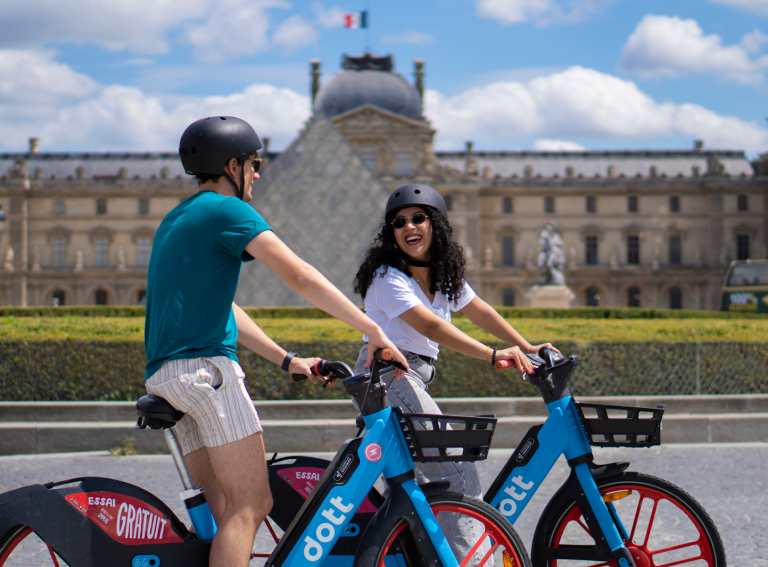“Just like e-commerce with eBay, social networking with Facebook and mobility with Uber, Dott is going to serve millions of people every day.”
This is Henri Moissinac, the Co-Founder and Chief Executive of shared micromobility firm Dott. Moissinac is French, currently based in London, but has spent most of his career in Silicon Valley, so he is better placed than most to make such comparisons.
After graduating with a PhD in Computer Science from Télécom ParisTech, he set up a highly successful e-commerce platform called iBazar that was sold to eBay for $140m.
He has also worked for the likes of Mark Zuckerberg at Facebook and Travis Kalanick at Uber.
Perhaps most impressively, he helped grow Facebook Mobile from 1 million to 1 billion users.
But now Moissinac has taken on a new challenge. To solve the urban mobility conundrum.
How Dott was founded
Moissinac loves to solve problems, often starting with the problems he experiences as a consumer.
“When I was a student living in Paris there was one part of the city where it was very difficult to get a taxi,” says Moissinac.
“I noticed this whenever I went to parties or on vacation and so when I came back to Europe I decided I want to change how people move in cities. I wanted to do something better than taxi services.
“So I joined Uber when it was a very young company, and worked there for three years, but Uber was about putting more cars in cities. I thought, there must be something better than this.”
That is when micromobility firm Bird launched its e-scooters in the city.
“I saw Bird’s e-scooters and realised this is it! We’re going to use this type of vehicle and we’re going to make it available, affordable and reliable, just like public transit.”
This is what inspired him to launch Dott in August 2018, initially with a fleet of shared e-scooters but it has since diversified into e-bikes.
The mother of invention
He is now on a mission to make micromobility accessible to everyone – even his elderly mother.
“Everybody has a mountain to climb and for me it’s finding a micromobility solution for my mum.
“It took me 10 years to get her to use Uber. I hope it takes a lot less time to get her to use one of our e-bikes, but this is a real challenge.
“Ultimately we want to serve everyone on every mode, downtown and in the suburbs, and in any type of weather.”
Realising Dott cannot achieve this all on its own, the firm is developing new partnerships.
Last week, Dott announced a first-of-its-kind permit in the Belgian city of Ghent to deploy e-bikes and e-cargo bikes with bike-sharing company Baqme.
The aim is to bring more diverse populations into micromobility by offering a range of vehicle form factors.
With the addition of e-cargo bikes, Ghent residents can replace car trips even when travelling with groceries, luggage or personal items.
“We’re very proud to launch Ghent. But this still doesn’t solve the case for my mum,” says Moissinac. “She can be a passenger but she can’t be a driver.”
Next on Dott’s radar is to serve people with reduced mobility.
“Some people spend their life in a wheelchair. They are not going to ride a two-wheeled e-scooter. But we found ways to leverage our infrastructure to help these people.”
In a new partnership with French accessibility start-up Omni, Dott is developing a vehicle aimed at those living with a disability.
Set to launch in the French city of Grenoble first, Dott says the new scooter can adapt to 95% of wheelchairs on the market.
A unique fixing feature makes it possible to establish a link between the scooter and the chair, which places it in front of the handlebars.
Available for long-term rental, the inclusive vehicle offer will soon extend to several other cities.
One year on in London, the lessons learned
Over in the UK, Dott has just celebrated its one-year anniversary operating in London, with positive signs signalling its accessibility mission is working.
“Users typically start with a joyride but we see more and more people riding the vehicles in their daily lives to commute,” says Moissinac. “It’s really catering to different types of people.”
Riders are using the vehicles more on weekdays rather than weekends and peak usage times are 8am and 6pm.
“So you can see how we are going from ‘it’s just a weekend ride to have fun’ to ‘it being part of my daily life’.”
Separately, Dott has also achieved 97% parking compliance, helping to keep the city orderly and tidy.
“I can tell you behind the scenes that this is extremely difficult to achieve. Between operations and machine learning in the cloud – a lot of work goes into this. Only a few players in the world have achieved this feat.
“We do need to do a better job at opening more parking spots and widening the geofencing though, so that all boroughs can participate. But I feel we have a strong base we can grow from.”
Crossing the chasm
So as micromobility firms descend on London this week for the Move summit, Moissinac, who is a speaker at the event, has one main message for the industry.
“The key for micromobility is that we have crossed the chasm where it’s a joy-ride. I think a lot of people still believe micromobility is a toy for just a few people and I want to show that this is not the case anymore. Most of our usage is from people using our vehicles in their daily lives. It’s as clean as public transit and we have all the signs that this is going to be a great business, so we’re here for the long term.
“As for my mother, we are not there yet in terms of providing a service for her needs, but believe me, it’s only a matter of time.”





